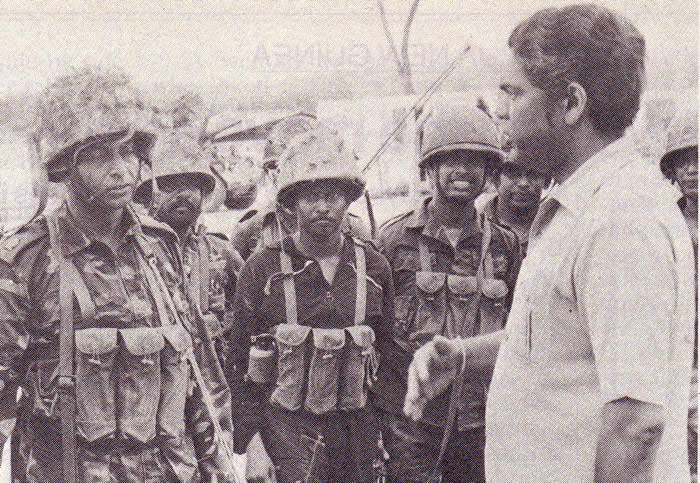The Operation In Jaffna: July 1979; What Was Wrong?
According to dissenting officers, if a proper ‘Appreciation of Situation’ had been done, it should have led to an integrated operation with a political solution to address the root cause. Military force should only be used economically so as not to alienate the people. The Army can in the short run restore a sense of order, but then the politicians have to do their bit.
Asked what he thought was most wrong with the operation, one officer said, “Soon after the operation started, two corpses of youth were found in Jaffna town. If you are going to tolerate or encourage that sort of thing, then things have gone badly wrong. All right, the Police may have done it. But I was co-ordinating officer during the 1971 insurgency and I know how these police fellows operate if you allow them. After all, the militant youth are also human. You must win them over and correct them or take them into custody. What the Army did in Jaffna was to terrorise the civilians.”
A younger officer reflected, “What the Government did wrong was to treat the militant youth as criminals. By acting against them as terrorists to be eliminated, they were cornered. There should have been a dialogue.” A dialogue about what? Lalith Athulathmudali, the main author of the 1978 constitution, was very clear about it when he told Mr. Nadarajah, the Jaffna DDC Chairman just before the July 1983 violence, that there would be no devolution. The only thing on offer was some money to put up a few structures. This was the bottom line, and so the Army had to be pushed to do the impossible.
A New Culture
General Denis Perera took over as army commander in 1977 after General Attygalle had held that position for 10 years. General Perera did some major re-organisation and it was one of the best periods in the Army in recent times. The Commander was viewed as an impartial and courteous man who did what was best for the institution and the men. With adverse political changes, the Tamils had been leaving the Army. General Perera took pains to ensure that the Tamils stayed and got what was their due according to merit. There is a reply from General Perera in the files of the Civil Rights Movement. This was regarding terms on which women were to be recruited into the Army. The Commander acknowledged the CRM’s concerns and promised to look into them. In the coming years any meeting ground between two such institutions ceased to exist.
 A good outgoing commander seeks to ensure that his successor is the best man, a man of character and moderation who commanded the respect of the men. Denis Perera duly recommended Justus Rodrigo whom he described as ‘a very straight man having the backing of the officers’. Denis Perera had an easy relationship with Jayewardene with whom he felt free to disagree. Here Jayewardene disagreed, and in a crucial manoeuvre after his own fashion, in October 1981, made Tissa Weeratunge army commander. From being a professional body, it changed the Army into an instrument of bludgeon, to deal with problems after the inclinations of the ruling clique. Two soldiers were killed in an ambush at KKS soon after Weeratunge became commander. These were the first army causalities.Read More
A good outgoing commander seeks to ensure that his successor is the best man, a man of character and moderation who commanded the respect of the men. Denis Perera duly recommended Justus Rodrigo whom he described as ‘a very straight man having the backing of the officers’. Denis Perera had an easy relationship with Jayewardene with whom he felt free to disagree. Here Jayewardene disagreed, and in a crucial manoeuvre after his own fashion, in October 1981, made Tissa Weeratunge army commander. From being a professional body, it changed the Army into an instrument of bludgeon, to deal with problems after the inclinations of the ruling clique. Two soldiers were killed in an ambush at KKS soon after Weeratunge became commander. These were the first army causalities.Read More

